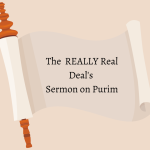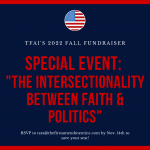Congress shall make no law respecting an establishment of religion, or prohibiting the free exercise thereof; or abridging the freedom of speech, or of the press; or the right of the people peaceably to assemble, and to petition the government for a redress of grievances.
The six clauses in our First Amendment are really three sets of two. The first two cover religion and faith. The next two cover individual speech and corporate or institutional speech, including media. The last two cover things citizens may want to do when informed by the first four clauses on faith and speech; namely, to assemble with whomever, and for whatever, they please; and to petition their government.
That’s what it’s about. Getting people to assemble — to “engineer” their assembling and their consent to be governed. Whether as Republicans, Democrats or Constitutionalists; Protestants, Catholics or Jews; free marketers, socialists or crony capitalists — it requires speech. Both individual and institutional. It’s precisely this speech that is used in all our power centers that shape culture — and has the ability to move men’s hearts.
So, when we ask the question, “Do you trust the media?” we’re really inquiring about fallible humans, and powerful groups of humans, with tremendous powers of influence, and whether they discharge that power faithfully to the true calling of journalism, or whether they’re pretending.
Some power centers have people and leaders who’re sincerely civic-minded. They truly want to “spread the gospel,” or “insure domestic tranquility,” or report “all the news that’s fit to print.” Some only want personal power, glory, or profit.
Some really are only advocates for powerful interests — the most powerful of which is creating bigger and more powerful governmental control of our lives. They pretend to want to “paint a portrait of society” by accurately reflecting the human condition and reporting events truthfully.
Media critics have long claimed political hacks hide in journalism. Many say both sides do it. While partially true, journalists routinely self-report as being 90 percent Democrat. We just witnessed most media morph from lapdog for Obama and Clinton, to attack dog on Trump. These same media institutions used to call Stalin “Uncle Joe,” and let Obama get away with ridiculing Romney for calling Russia “our number one geopolitical foe,” after Obama had been caught on a hot mic telling Rusian President Medvedev that he’d “have more flexibility” after his 2012 re-election. After the Trump victory, most institutional journalists were falsely crying, “Russia hacked the election.”
Edmund Burke described journalists as the “Fourth Estate,” checking the powerful. The advent of mass media and big money got them bought and institutionalized. Fewer voices were allowed, as “engineering consent” for more government control — and less individual liberty — became primary.
What about the shut-out voices? The explosion of internet-driven media and talk-radio programs like mine has given new journalists the power to be called the “Fifth Estate.” Not only watching the powerful, but also watching the watchers, with many more voices.
Like most American institutions, the Fourth Estate of institutional journalism is now stale and sickened, with many segments no longer worthy of trust. I have confidence, however, that as the Fifth Estate of new media matures and grows, the increased competition in the marketplace of ideas will bring correction and healing — as new ideas usually do.













